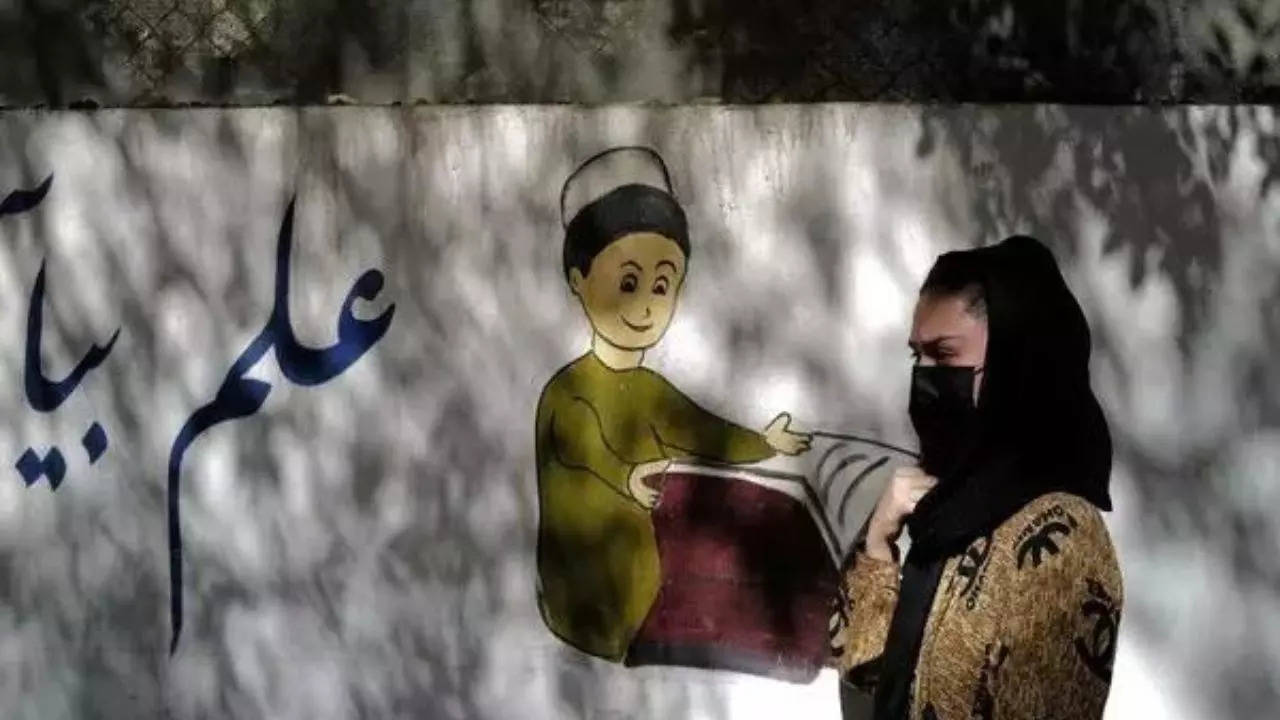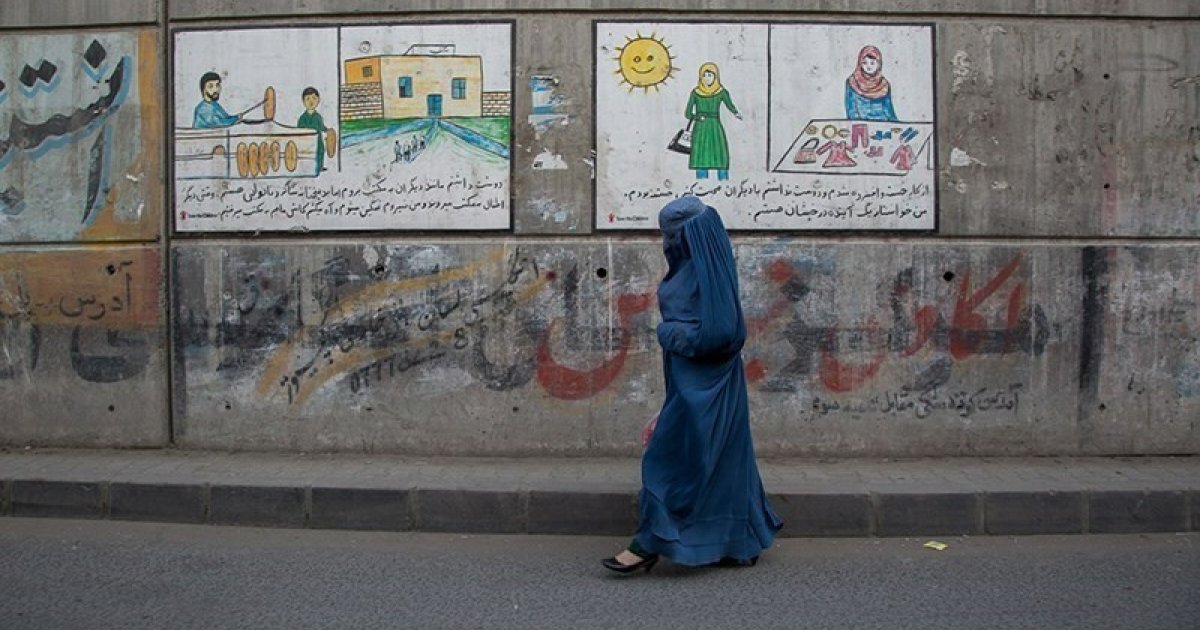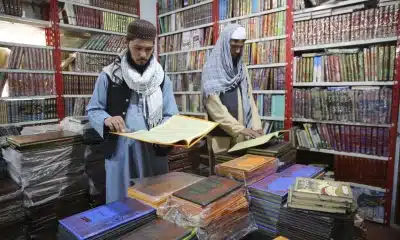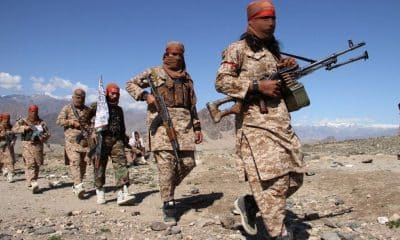World
2 Years Ago, The Taliban Banned Girls From School. It’s A Worsening Crisis For All Afghans
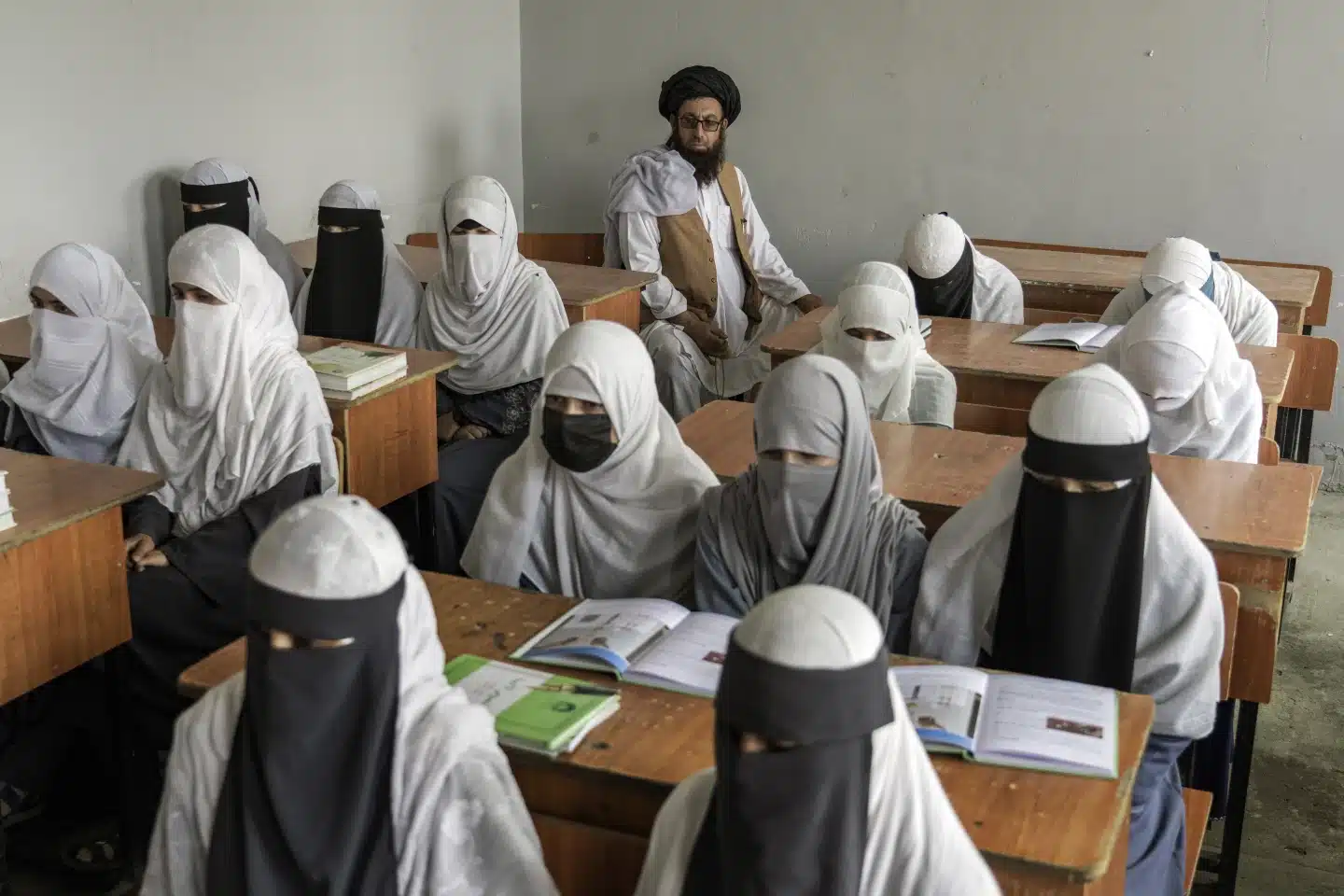
ISLAMABAD, Pakistan (AP) — Afghanistan is the only country in the world with limits on female education, two years after the Taliban forbade girls from attending school beyond sixth grade. The rights of Afghan women and children are now on the agenda of the United Nations General Assembly, which meets in New York on Monday.
The United Nations Children’s Fund claims the prohibition affects more than 1 million females. However, it estimates that 5 million were out of school before the Taliban takeover owing to a lack of facilities and other factors.
The ban drew international censure and remained the Taliban’s most significant impediment to being recognized as Afghanistan’s legitimate authority. The Taliban, however, ignored the outcry and went even further, barring women and girls from higher education, public venues such as parks, and most jobs.
Here’s a look at the education prohibition for girls:
WHY DID THE TALIBAN KEEP GIRLS OUT OF HIGH SCHOOL?
The Taliban prohibited girls from continuing their education past the sixth grade because it did not conform to their understanding of Islamic law or Sharia. They did not make an exception for boys. In the last two years, they have made little progress in creating the environment necessary for girls to return to school.
According to regional analyst Hassan Abbas, their perspective on females’ education stems partially from a certain 19th-century Islamic philosophy school and partly from rural areas where tribalism is ingrained.
“Those who went on to develop the (Taliban) movement opted for ideas that are restrictive, orthodox to the extreme, and tribal,” said Abbas, a Taliban expert. According to Abbas, the Taliban leadership thinks that women should not participate in anything social or public, especially schooling.
When the Taliban ruled Afghanistan in the late 1990s, they prohibited girls from attending school.
WHAT ARE THE VIEWS OF MUSLIM-MAJORITY COUNTRIES ON THE BAN?
Outside of Afghanistan, clergy agree that Islam prioritizes female and male education. “The Taliban have no basis or evidence to claim the contrary,” Abbas stated. Individual countries and groupings, such as the Organisation of Islamic Cooperation, have failed to persuade the Taliban.
Former Taliban front-line leader Syed Akbar Agha stated that the rebels adopted an Islamic system the day they took Kabul in August 2021.
“They also gave Afghans and the rest of the world the impression that the country would have an Islamic system,” Agha remarked. “At the moment, there is no (other) Islamic system in the world.” The international community is working hard to bring democracy to Islamic countries and pull them away from the Islamic system.”
WHAT IMPACT DOES THE BAN HAVE ON WOMEN?
According to Roza Otunbayeva, special representative for Afghanistan and director of the United Nations mission in Afghanistan, one of the apparent consequences of an education prohibition is a lack of training for aspiring healthcare workers.
Female medical students’ studies were interrupted following the Taliban’s proclamation prohibiting women from pursuing higher education last December. Afghan women work in hospitals and clinics — one of the few open areas — but the pipeline of qualified candidates will dry up. Afghan women cannot see male doctors. Hence, children will be denied medical care if women are their primary carers.
“If nothing changes in the future, where will the female doctors, midwives, gynaecologists, and nurses come from?” Otunbayeva told The Associated Press in an email. “In a strictly gender segregated society, how will Afghan women be able to get the most basic healthcare services if there are no female professionals to treat them?”
WHAT EFFECT WILL IT HAVE ON AFGHANISTAN’S LARGER POPULATION?
The high school ban is about more than just females’ rights. The situation is worse for all Afghans.
Tens of thousands of teachers have been laid off. Support personnel are also out of work. Private educational institutions and businesses that gained financially from girls’ education have been impacted. Afghanistan’s economy is in shambles, and people’s earnings are falling. According to UNICEF, excluding women from the labor force costs the country’s GDP billions of dollars.
With their shift towards madrassas, or religious schools, the Taliban prioritize Islamic knowledge over fundamental literacy and arithmetic, paving the way for a generation of students with no modern or secular education to enhance their or the country’s economic future.
Other effects for the wider public include public health and child protection.
According to UN data, birth rates are higher among Afghan girls aged 15 to 19 who do not have a secondary or higher education. A woman’s education can also influence whether her children receive basic immunizations and if her daughters marry before 18. According to the United Nations, one of the biggest causes of deprivation is a lack of education for women.
According to aid organizations, girls are at a higher risk of child labor and child marriage since they are not in school, despite the mounting problems experienced by families.
WILL THE TALIBAN’S MINDS CHANGE?
The Taliban conducted a decades-long jihad to impose their Sharia-based ideology. They are not going down without a fight. Sanctions, asset freezes, lack of formal recognition, and global denunciation have had little effect.
Countries with ties to the Taliban may be able to exert influence. However, they have distinct agendas, making a united front on girls’ education unlikely.
Pakistan is concerned about a rise in insurgent activity. Water resources are a source of contention for Iran and Central Asian countries. China is looking for prospects for investment and resource extraction.
There is a greater possibility of pressure coming from within Afghanistan.
The Taliban’s rule today is not the same as it was decades ago. Senior officials, notably chief spokesman Zabihullah Mujahid, use social media to communicate with Afghans at home and abroad.
They point out their success in eliminating narcotics and combating armed groups like the Islamic State. However, increasing security and eliminating poppy crops can only satisfy people.
While Afghans are concerned about losing girls’ education, they also have more pressing concerns, such as earning a living, putting food on the table, having a roof over their heads, and surviving droughts and hard winters.
Within Afghanistan, there is a desire for the Taliban to gain international legitimacy, even without recognition, so that the economy can prosper.
According to Abbas, public opinion is considerably more vital and influential today than it was during the Taliban administration in the 1990s. “Internal pressure from ordinary Afghans will eventually force Kandahar into a corner and make a difference.”
However, it could take years for the effects of the prohibition to impact Afghan males and spark a wave of protest. Right now, it only impacts girls; most protesters have been women.
According to Agha, Afghans will support the ban if the ultimate goal is to implement hijab the Islamic headscarf and prohibit gender mingling. But they will not if the goal is merely to eliminate females’ education completely.
“I think only the nation can lead the way,” he remarked.
SOURCE – (AP)
U.K News
Russia Proposes UN Resolution On Banning Weapons In Space, After Vetoing Similar UN-Japan Draft

United Nations — A week after vetoing a U.S.-Japan resolution to halt an arms race in space, Russia circulated a UN resolution urging all countries to take immediate steps to prevent weapons from being placed in outer space “forever.”
The Russian draft resolution, goes beyond the U.S.-Japan plan by calling not only for steps to prevent weapons from being deployed in outer space but also for preventing “the threat or use of force in outer space,” “for all time.”
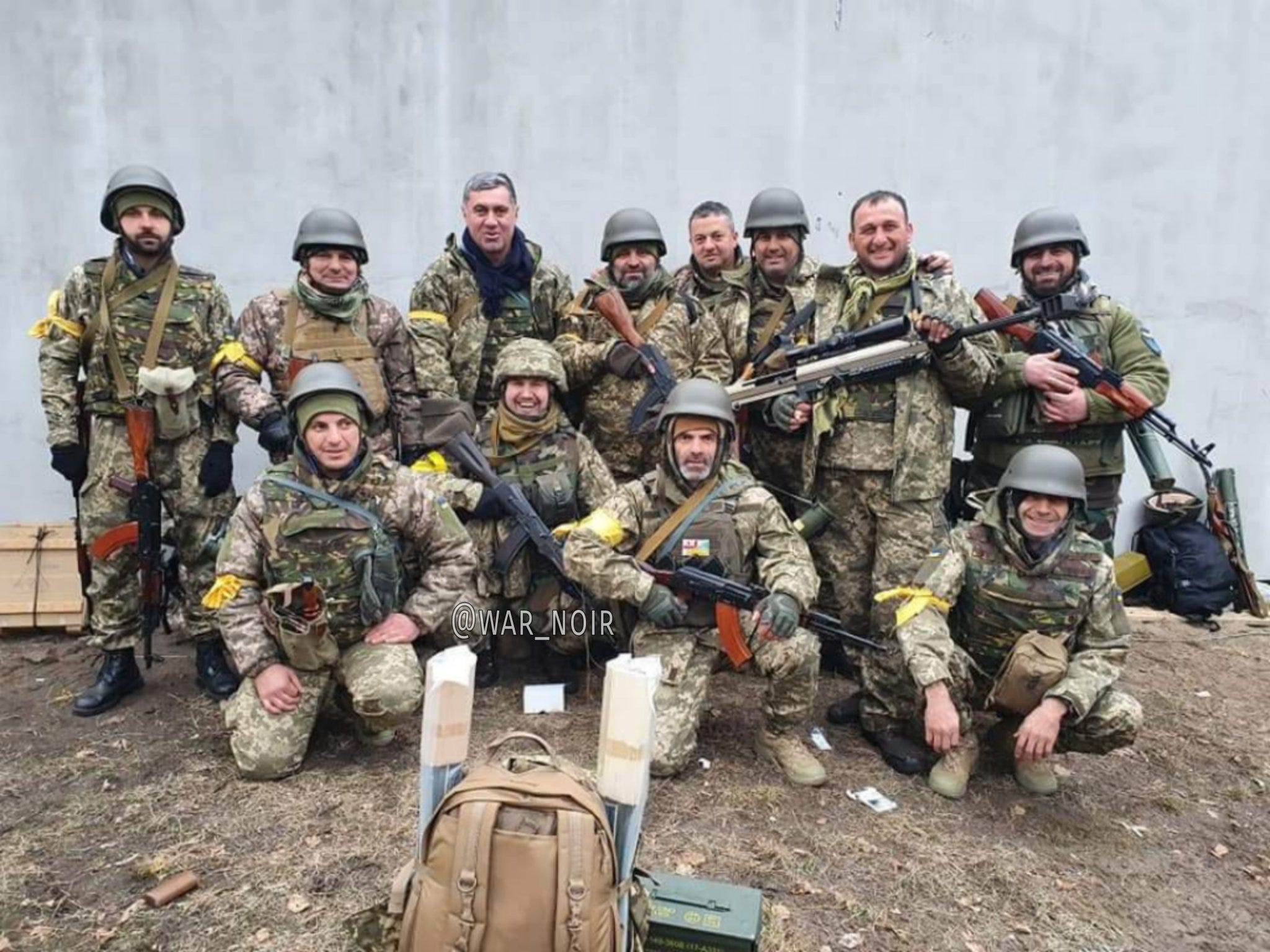
CNN – VOR News Image
Russia Proposes UN Resolution On Banning Weapons In Space, After Vetoing Similar UN-Japan Draft
It states that this should include deploying weapons “from space against Earth, and from Earth against objects in outer space.”
When Russia’s UN Ambassador Vassily Nebenzia rejected the United States-Japan draft, he warned the Security Council that it did not go far enough in outlawing all sorts of weapons in space.
The vetoed resolution only addressed weapons of mass destruction, including nuclear weapons, and made no mention of other weapons in space.
It would have urged all countries to refrain from developing or deploying nuclear weapons or other weapons of mass destruction in space, as prohibited by a 1967 international convention adopted by the United States and Russia, and to recognize the importance of verifying compliance.
Before the US-Japan resolution was voted on April 24, Russia and China presented an amendment calling on all countries, particularly those with space capabilities, “to prevent for all time the placement of weapons in outer space, and the threat of use of force in outer spaces.”
Seven countries voted in favor, seven against, and one abstention, and the amendment failed to receive the requisite nine “yes” votes in the 15-member Security Council.
Following the decision, US Ambassador Linda Thomas-Greenfield informed the council that Russian President Vladimir Putin has stated that Moscow has no intention of placing nuclear weapons in space.
“Today’s veto raises the question: why? Why, if you are obeying the rules, would you oppose a resolution that reinforces them? “What could you possibly be hiding?” she inquired. “It’s confusing. And it is a disgrace.”
AP – VOR News Image
Russia Proposes UN Resolution On Banning Weapons In Space, After Vetoing Similar UN-Japan Draft
Putin was responding to the White House’s revelation in February that Russia had acquired a “troubling” anti-satellite weapon capability, but such a weapon is not yet operational.
Vassily Nebenzia, Russia’s UN Ambassador, said after casting the veto that the US-Japan resolution cherry-picked weapons of mass devastation.
He emphasized that the US and its partners had already revealed plans to deploy weapons in outer space, which explains their activities.
Nebenzia also claimed that the United States has been opposing a Russian-Chinese proposal for a convention prohibiting the deployment of weapons in outer space since 2008.
Thomas-Greenfield accused Russia of undermining global treaties to prevent the spread of nuclear weapons, recklessly invoking “dangerous nuclear rhetoric,” abandoning several arms control obligations, and refusing to engage “in substantive discussions around arms control or risk reduction.”

The Sun – VOR News Image
Russia Proposes UN Resolution On Banning Weapons In Space, After Vetoing Similar UN-Japan Draft
Much of the Russian draft resolution is identical to the US-Japan text, including the wording aimed at averting an arms race in space.
It urges all countries, particularly those with significant space capabilities, “to actively contribute to the goal of the peaceful use of outer space and the prevention of an arms race in outer space.”
According to Thomas-Greenfield, the world is only beginning to realize “the catastrophic ramifications of a nuclear explosion in space.”
SOURCE – (AP)
World
Phones, Islamic Books And Currency Exchange. Some Businesses Are Making Money Out Of Taliban Rule

KABUL, Afghanistan Taliban – Yunis Safi, a Kabul businessman, understands how important it is to show off your phone if you want something done.
“In Afghanistan, your phone is your personality,” he remarked, beaming, his hands adorned with jewel-encrusted rings. One has an emerald, the other a large Russian diamond. “When you go to a meeting with the government, the better your phone, the more they respect you.”
Safi owns a phone business in the exclusive Shar-e-Naw area. An armed guard stands outside. The iPhone 15 Pro Max is now on store shelves, priced at $1,400. He has customers willing to part with this amount of money, which may surprise some, considering the country’s economic troubles and that more than half of the population relies on humanitarian help for survival.
Afghanistan’s finances were precarious even before the Taliban took power in 2021. The budget relied significantly on foreign help, and corruption was rampant. The seizure shattered Afghanistan’s economy, freezing billions of dollars in international finances and forcing tens of thousands of highly skilled Afghans to flee the country with their money.
AP – VOR News Image
Phones, Islamic Books And Currency Exchange. Some Businesses Are Making Money Out Of Taliban Rule
Despite the terrible conditions, some businesses benefit under the Taliban administration. Women are relegated to customers, however, because authorities have forbidden them from most jobs, including retail. None of Safi’s 78 employees are female.
He has tapped into a varied client base, including those eager for the latest iPhone release and those who prefer simple devices. The latter account for the majority of his sales and range in price from $20 to $200.
The Taliban used to target phone towers and threaten telecom companies, accusing them of working with the United States and other international forces to detect insurgent movements via mobile phone signals. Now, they’re investing in 4G mobile networks.
The Communications Ministry reports that 2 million new SIM cards have been issued in the last two years, and subscriber numbers are increasing. Enayatullah Alokozai, a ministry official, stated that the government is investing $100 million in telecom and has completely rebuilt hundreds of towers.
There are 22.7 million active SIM cards in a country with a population of 41 million. Ten million are for phone calls, with the remainder for mobile internet.
According to Trade Ministry estimates, phone imports have increased. More than 1,584 tons of phones entered Afghanistan in 2022. Last year, it weighed 1,895 tons.
Safi said he had many Taliban customers, and the younger ones prefer iPhones. “Of course, they need smartphones. They use social media and enjoy making videos. The iPhone offers stronger security than Samsung. The camera’s resolution, CPU, and memory are all improved. Afghans use smartphones like everyone else.”
Safi has the iPhone 15 Pro Max, an Apple Watch Ultra, and three automobiles.
Business was difficult shortly after the Taliban took power, but it is improving, according to Safi. “The people buying the new release iPhones are the ones with relatives abroad sending money to Afghanistan.”
AP – VOR News Image
Phones, Islamic Books And Currency Exchange. Some Businesses Are Making Money Out Of Taliban Rule
Remittances are a lifeline, but less than half of what they were before the Taliban took power and the financial system collapsed.
At Kabul’s rowdy Shahzada Market, hundreds of money changers clutch stacks of the local currency, the Afghani, and noisily hawk their wares. They occupy every floor, stairwell, corner, and cranny.
According to Abdul Rahman Zirak, a senior official at the money exchange market, $10 million changes hands every day. The diaspora sends largely U.S. cash to family, which they convert for Afghani.
Before the Taliban took control, there were more ways to donate money to Afghanistan. However, there are no longer any linkages to SWIFT or international banking, which is one of the main reasons why business is brisk in the market, he said.
“The work of money exchangers has increased and strengthened,” he stated. “Money transfers come from Canada, the U.S., Europe, Australia, Arab nations and other neighboring countries.”
Trade becomes extremely chaotic during the holidays. During the holy month of Ramadan, 20,000 people visited the market daily, and it took more than 90 minutes to enter, he claimed.
Our business may suffer if the restrictions are lifted and the assets are unfrozen. But I don’t see this happening. Many do not have bank accounts. Unemployment is rising, therefore people send money to Afghanistan. Our company will be needed for years to come.”
Irfanullah Arif, who owns Haqqani Books, a specialist retailer of Islamic manuscripts, is likewise pleased with his fortunes. His consumers are primarily religious school professors and pupils.
There are at least 20,000 madrasas in Afghanistan. The Taliban intends to build more. Last year, the supreme commander allegedly directed the recruiting of 100,000 madrassa teachers.
AP – VOR News Image
Phones, Islamic Books And Currency Exchange. Some Businesses Are Making Money Out Of Taliban Rule
While Arif’s business suffered, along with everyone else’s, from the chaos that followed the takeover, there was another cause. “All the students left the madrassas and went to work for the (Taliban) government,” Arif claimed.
Success, however, comes with a price. Arif imports everything, and the Taliban are just concerned with collecting revenue, even from Islamic literature.
Arif pays a tax of 170 Afghanis ($2.36) for a carton of 100 books, with a shipping cost of 500 Afghanis ($6.95). His bookstore’s taxes have increased under the Taliban administration.
“That’s why books are expensive in Afghanistan,” he sighed. “With the increase of madrassas, our trade has gone up, but so have the taxes.”
SOURCE – (AP)
Election News
India’s Modi Continues to Slam Muslim During 2024 Election Campaign
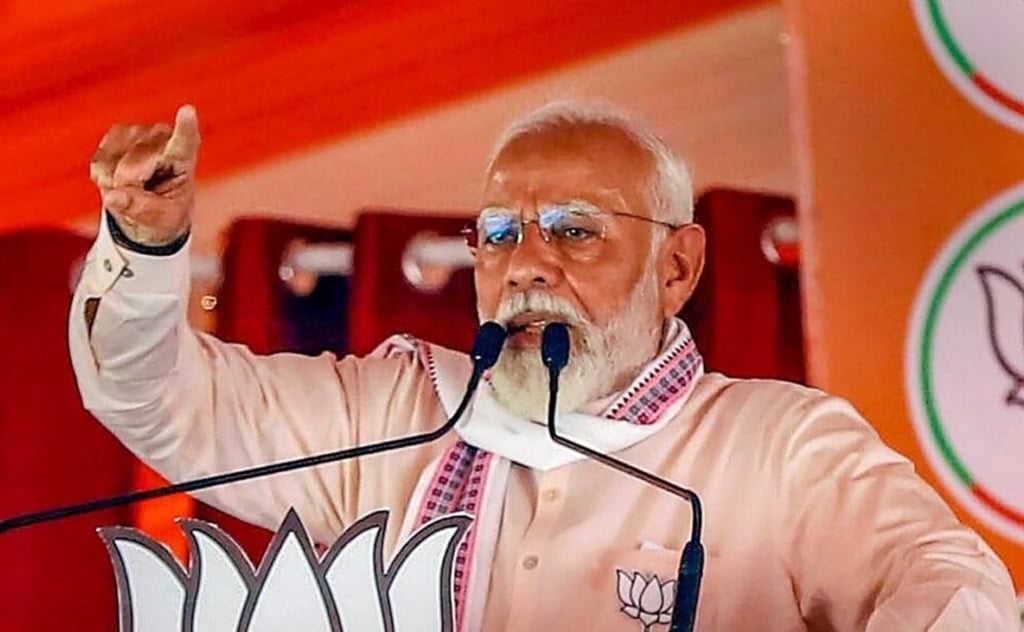
Indian Prime Minister Narendra Modi has stepped up divisive rhetoric against Muslims throughout the election campaign, using some of the most harsh language of his decade in power to bash opponents and mobilize Hindu voters as his party seeks a historic third term.
Modi has referred to the country’s Muslim minority as “infiltrators” in a series of rallies since India’s general election began on April 19, likened his Bharatiya Janata party’s arch-rival Indian National Congress to the historic pro-Pakistan Muslim League, and accused Congress of attempting to “loot” wealth from Hindus and redistribute it to Muslims.
“Congress wants to take part of the rights of [lower-caste Hindus] and give it to their vote bank,” Modi said during a campaign event in Goa on Saturday. “And you know who Congress’s favourite vote bank is,” he added, making a thinly veiled reference to Muslims.
The same day, Anurag Thakur, the BJP’s communication minister, warned another crowd that Congress “wants to give your children’s property to Muslims”.
Modi’s intensification of aggressive rhetoric comes as the BJP seeks to rally support among Hindus, who account for over 80% of the population, in order to gain a super-majority and entrench its domination in national politics.
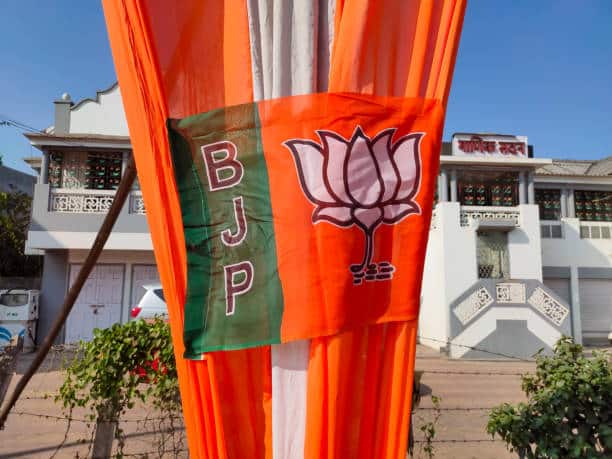
Flag or election symbol of Bhartiya Janata Party: Getty Images
Modi Ups his Hindu Muslim Rhetoric
The BJP aims to win 370 of the 543 available parliamentary seats, up from 303 in 2019. The results will be announced on June 4, following six weeks of delayed voting.
However, observers who consider the Hindu nationalist BJP as the favourites believe this goal will be difficult to achieve, citing evidence of a dip in turnout during the first two rounds of voting and anti-incumbency feeling in portions of the ruling party’s northern heartland.
“I don’t think I have seen a prime minister speak such inflammatory rhetoric,” said Asim Ali, an independent political analyst, adding that Modi was attempting to “energise the Hindutva [Hindu nationalist] base”.
“Because the prime minister is saying this now, local level BJP operatives are free to take it up.”
The divisive turn has enraged Modi’s detractors, who have filed complaints with India’s electoral commission for suspected violations of the code of conduct. The body sent a notice to the BJP last week, but did not identify Modi and has yet to take action.
During a rally in Agra, home to the Taj Mahal monument erected by a Muslim Mughal ruler, Modi accused Congress of pandering to religious minorities.
“The politics of appeasement has divided the country into pieces,” Modi claimed, claiming that opposition parties are attempting to “steal” from Hindus. Muslims make up approximately 14% of India’s population.
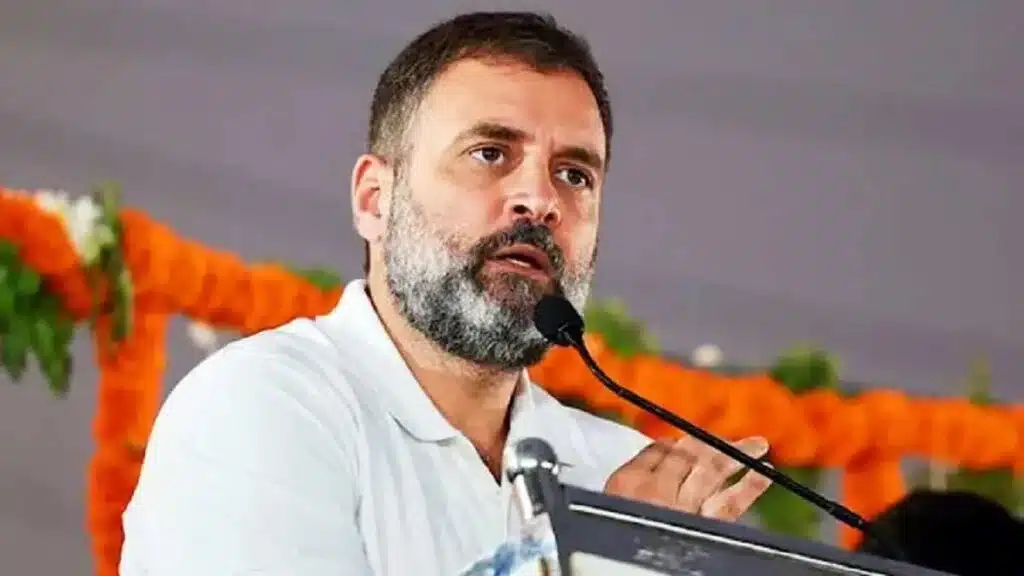
Defence Congress leader Rahul Gandhi: Getty Images
India’s Rahul Gandhi Steps Up Pressure
Congress denies these allegations, accusing the business-friendly BJP of diverting government funding to billionaires while ignoring unemployment and inequality. It has promised to conduct a caste census, which it claims will help allocate resources to underprivileged communities.
Rahul Gandhi, a Congress leader and Modi’s most visible opponent, said on Friday that Modi appeared “very nervous”.
“Narendra Modi has snatched money from the poor . . . [and] given it to the billionaires,” he claimed. “We will give that money to the poor people of India.”
Because India has tight restrictions forbidding the publication of exit polls during the election, there is no confirmed information about any party’s standing.
However, many doubt that the BJP, which swept much of India in 2019, would be able to considerably increase its seat total.
Reaching 370 seats appears to be “a bit of a puzzle, as to where the extra seats are going to come from,” according to Ronojoy Sen, a political scientist at the National University of Singapore, who speculates that the objective may have been designed to motivate party cadres.
Both Hindu and Muslim voters in Agra expressed dissatisfaction with the campaign’s provocative tone. Rizwan Ahmed, 18, said there was “no such problem” between faiths, but “politicians just say things and then people twist the statements”.
“This kind of polarisation and communal rhetoric, of course it’ll appeal to your core voters,” Sen said in a statement. “But I’m not sure how well it works in expanding the core.”
Source: Financial Times
-
Entertainment5 months ago
Robert Downey Jr. Won’t Be Returning To The Marvel Cinematic Universe As Tony Stark
-
Politics5 months ago
Unveiling the Power and Influence of The Conservative Treehouse
-
Sports4 months ago
Saints’ Aggressive Play-Calling Ends Up Coming Back To Hurt Them In Loss To Rams
-
Celebrity5 months ago
Norman Lear, Producer Of TV’s ‘All In The Family’ And Influential Liberal Advocate, Has Died At 101
-
Innovation5 months ago
Sony Debuts First PS5 Controller For Disabled Gamers
-
Business4 months ago
Nike Says It Will Cut $2 Billion In Costs In A Major Warning For Consumers

